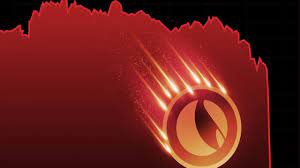PayPal CEO responded for the first time “Libra exited the door” and revealed that individuals only hold bitcoin
The article was originally published in Fortune
When Facebook announced the digital currency project Libra in June, a total of 28 companies signed up to join the Libra Association, including PayPal, Visa, MasterCard and other companies.
In October, PayPal became the first company to withdraw from the Libra Association without specific reasons. At the time, PayPal only said:
“Abandoning further involvement with the Libra Association at this time and continuing to focus on advancing our existing mission and business priorities as we strive to democratize underserved populations to financial services.”
- FEMA of the United States plans to build a disaster-based insurance platform based on blockchain to simplify the payment process
- 2019 Global Enterprise Blockchain Benchmark Study Report (Full Text)
- Regarding the opportunities and limitations of the central bank's digital currency (CBDC), Fed Chairman Powell officially gave his views.
Last week, PayPal CEO Dan Schulman came to the Fortune magazine office and met with many journalists and editors and talked about a lot of topics. The main focus was on the relationship between PayPal and Libra, and PayPal's own work in the field of cryptocurrency. .

Let's see what Schulman is saying, there are surprises!
Fortune: Why did you decide to withdraw from the Libra Association?
Schulman: When David Marcus (the head of Facebook Libra) first came to talk to us about Libra, he used in a way that appealed to us to describe inclusive finance. We are always exploring the next generation of technologies, such as blockchain infrastructure, to accomplish tasks more efficiently. We want to know more about this and everyone is interested in learning more. When we learned more about Libra and saw that there is still a lot to do outside of Libra, and we have a lot to do on our own roadmap, we say, "We think, Compared to putting all of these resources on Libra, if we focus on our own roadmap, we can push inclusive finance faster."
This is not a fierce divorce. Only they will start to take a path that we are very interested in, to observe and monitor, and maybe we will have a way to work together in the future. I wish them good luck. Fortune: Is it because you were frightened by the review by the regulatory authorities?
Schulman: For us, regulation and compliance are fundamental. But we have an extremely strong relationship with all regulators, and we are very dependent on it. It’s not that regulation really scares us. It’s just about “what do we want to focus on, what do we want to do today to advance our mission?” Once they start to figure it out, we’ll see where they are. .
Fortune: Earlier this year, PayPal's chief financial officer, John Rainey, said that the company has a team working on blockchain and cryptocurrencies. Can you share with me what they are doing?
Schulman: There is such a thing, but sorry, some are competitive, we don't want to disclose…
Fortune: Will it compete with Libra?
Schulman: No, it doesn't necessarily compete with Libra, it's just a competitive advantage. For example, you might ask us what the next product is going to launch, or what our next acquisition is. But I may not be able to tell you this either.
We believe that blockchain technology has a lot of hope. This is very interesting for us, but it does need to do something that the traditional track can't do. Most people think that blockchain is about efficiency, but today's systems are actually quite efficient. Sometimes there are middlemen in the middle, but the middlemen are very efficient. Therefore, we believe that many small and elegant things can happen on the blockchain, such as around identity.
It's about this level of application, not necessarily using it to reduce the cost of one-eighth. By the way, if it's really a lower-cost infrastructure, we all turn to it.
In terms of cryptocurrency, they are still very unstable, so we don't have much demand for it because the merchant's profit margin is very low. And what they have to do is to turn it into a legal currency right away, and to convert it into a legal currency is a fee, so any advantage in cost will usually be eaten by the conversion fee. Before it becomes less volatile, it will not become a currency widely accepted by merchants on the Internet. Of course, I am not referring to the dark market, but the ordinary network.
This does not mean that I am negating cryptocurrencies, and many people are trading them. It is more like a commodity than a cash present. But you can consider use cases in different countries and places where they can be more stable than alternatives. Fortune: Do you personally hold cryptocurrencies?
Schulman: Yes, bitcoin.
Fortune: Only Bitcoin?
Schulman: Yes, only bitcoin.
We will continue to update Blocking; if you have any questions or suggestions, please contact us!
Was this article helpful?
93 out of 132 found this helpful
Related articles
- Zhongying Internet publicly claimed that it is preparing for the first of the A-share listed companies in the digital currency trading platform.
- Hangzhou released the first "government service chain" of the underlying system of government affairs blockchain
- The lockout volume exceeds $100 million, but Synthetix has these problems.
- CCTV financial commentary lie down to make money, monthly into a million? Don't let the blockchain become "cheat everywhere"
- Industry Research Report | Blockchain Derivatives Overview: Rapid Development, Risk Symbiosis
- Blockchain VS quantum computing, this is probably the true incense law that Ren Zhengfei can't escape.
- Science and Technology Daily: Be wary of changing the blockchain into “blocks”






